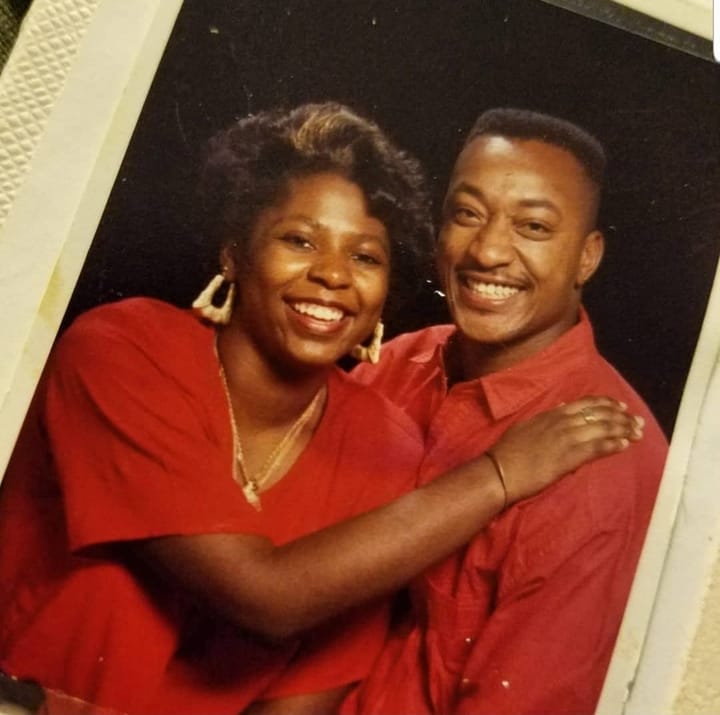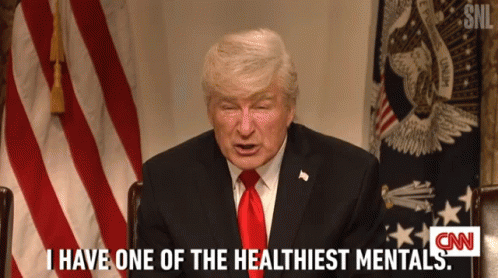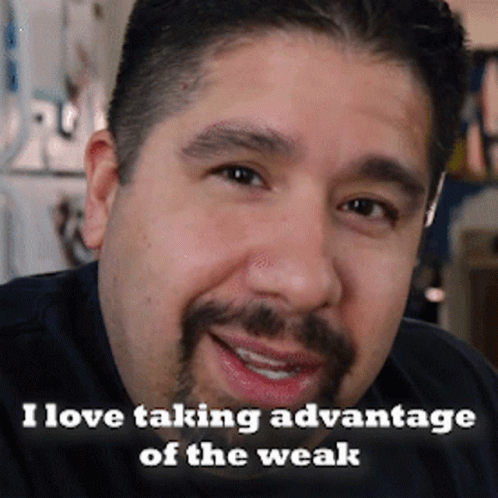The Narcissist/Empath Dynamic
The empath’s fixation on 'saving' the narcissist is, in truth, a projection of their own unresolved wounds—their deep longing to be loved, seen, and validated. By focusing on the narcissist's pain, they avoid confronting their own.

Like attracts like
One of the most painful truths to face on the path of self-discovery is that we don't attract what we want; we attract what we are. This is difficult to accept because, oftentimes, we encounter things and people in our lives that are ugly, painful, and traumatic, and it's hard to take responsibility for the presence of those negative experiences. But the truth is, unless you're a small child or someone else who has no choice in the company you keep, the people in our lives are a reflection of ourselves. This means that if there are 'trash' people in our lives, they are there because we attract, accept, and sustain them in some way, shape, or form.
Of the most toxic traits, I think most people would agree that narcissism ranks among the top. It seems like now, more than ever, the term 'narcissist' is thrown around quite liberally to label those we perceive as lacking the baseline empathy common to most human beings, instead being mostly, or only, concerned with themselves. Because of this, overt narcissists are often ostracized as people to avoid. But what’s interesting to me is how much we all try to avoid acknowledging just how attractive narcissism can be.
One of the current candidates for President of the United States of America comes to mind when I think of attractive narcissists. Don't get me wrong, I personally find nothing appealing about Donald Trump, but I think anyone who says he isn't charismatic or capable of drawing a lot of attention is lying to themselves. We love to categorize traits we don't like as objectively 'bad,' but the truth is that narcissism, and many other 'toxic' traits, can actually be very attractive.

Ironically, the people most often attracted to narcissists in a more intimate sense are those who identify as empaths. An empath, or an empathetic person, is someone with a heightened ability to empathize with or share in the emotions of others. So, it’s ironic that an empath would be drawn to a narcissist because, from the outside looking in, the empath seems to be the polar opposite of the narcissist. Yet, for some reason, empaths and narcissists are highly attracted to each other. In my own experiences with these dynamics, both as the narcissist and the empath, I’ve developed a theory about why the narcissist/empath pairing is so common. And I think what I’ve discovered might surprise you because, as it turns out, the narcissist and the empath aren’t as different as they appear to be.
Different responses to similar trauma
One of the things that blew my mind after losing my mother and it drastically changing my life for the better was realizing that everyone's mother dies eventually, yet not everyone is transformed positively by it. In fact, for many, the death of a close loved one changes them for the worse. I’ve come to understand that this phenomenon—where tragedy makes some people sweeter and others more bitter—is precisely what drives the split between the narcissist and the empath. Both the narcissist and the empath typically have experienced traumatic childhoods. When we think of 'traumatic' childhoods, we often default to imagining poverty or physical abuse, but I believe this is one of the biggest mistakes we make when trying to understand others. Trauma, especially for a child, comes in many different forms.
I am 100% sure that Donald Trump had a traumatic childhood, and the only evidence I need to support this is how he behaves as an adult—which is like a child. Childishness (not to be confused with childlike-ness) is one of the clearest signs that someone had a difficult upbringing because it often reveals an inability to mature. A large part of what leads to adult narcissism is the inability to feel, understand, or express one’s own emotions, which, of course, makes it nearly impossible to feel, understand, or accept the emotions of others.
But a traumatic childhood can also send you in the opposite direction. Many of us experienced great pain in childhood, which affected us in such a way that we cannot stomach the idea of causing similar pain to others. Our response to our own trauma often makes us overly empathetic, putting other people’s feelings before and above our own—regardless of how much doing so may damage us personally. On the surface, these 'self-sacrificing' people are celebrated as virtuous, held up as examples of who we should aspire to be. But on a deeper level, these overly empathetic people are often suffering and using their service to others as a way to bypass their own pain. Worst of all, these individuals often see themselves as misunderstood victims, and this unconscious vulnerability makes them the perfect targets for narcissists.

This dynamic creates the toxic cycle so common in narcissist-empath pairings: the more the empath pours themselves into serving the narcissist, the emptier they feel inside. The empath's self-worth becomes tied to how much they give, but they neglect their own needs to the point of depletion. Their fear of being selfish or causing pain to others drives them to ignore their own suffering, leading to a disconnection from themselves. In reality, their inability to set boundaries or prioritize their own healing prevents them from forming authentic, healthy, and balanced relationships with others. Empathy rooted in unresolved trauma is inherently unstable because it has less to do with genuinely wanting to understand another person and more to do with avoiding the confrontation of one's own pain. Until the empath commits to healing their trauma, they are destined to attract people who will see the underlying weakness behind their kindness and exploit it over and over again.
An attempt at finding balance
Just as much as the narcissist needs to become more empathetic, the empath needs to become more selfish, and that explains why they find each other so attractive—because they both see in each other something they'd like to develop within themselves. The empath is already somewhat narcissistic but denies themselves the freedom to explore self-centeredness out of fear that they’ll become just like those who initially hurt them. The narcissist, on the other hand, is already somewhat empathetic but suppresses their compassion for others out of fear that it will make them weak and vulnerable to being hurt again.
In my experience, narcissism develops from growing up in an environment that lacks empathy. When it feels like no one cares about your feelings, it’s easy to become obsessed with yourself and your own emotions. Over time, being isolated with your own feelings and having no one to share them with makes it difficult to empathize with others, as you learn to only care about your own emotions. And this is precisely why an empath is so attractive to a narcissist. A narcissist, being somewhat empathetic themselves, can sense when someone genuinely cares about their feelings and secretly, this is what the narcissist desires above all else—someone who truly cares about them.

What the empath finds attractive about the narcissist is their ability to sense the narcissist's pain and recognize that, deep down, they are soft, sensitive, misunderstood, and seeking love. An unhealed empath jumps at the opportunity to 'fix' the narcissist by offering love and care, subconsciously giving what they themselves are desperate to receive, hoping that once the narcissist is 'fixed,' they'll get a return on their emotional investment. But in reality, the empath's obsession with fixing the narcissist is rooted in their own inability to heal themselves. While the empath may be well-meaning in their desire to help, they often fail to recognize that the narcissist is not interested in being 'fixed'—despite what they may claim. The narcissist thrives on a dynamic of taking without giving, with their needs centered around control, admiration, and validation, not genuine healing, growth, or evolution. The empath’s efforts, no matter how sincere, only serve to feed the narcissist’s ego, while the empath becomes increasingly drained until all that remains is a shell of who they once were.
The empath’s fixation on 'saving' the narcissist is, in truth, a projection of their own unresolved wounds—their deep longing to be loved, seen, and validated. By focusing on the narcissist's pain, they avoid confronting their own. The relationship becomes a painful dance of codependency: the narcissist feeds off the empath’s need to give, while the empath clings to the hope that their love will transform the narcissist, never realizing that true healing cannot come from the outside in but must be cultivated from the inside out. A narcissist will remain a narcissist until they are ready to change, and no amount of love, care, support, or attention can coerce them into changing before they are ready.

A healed empath cannot find a narcissist attractive on an energetic level because, having healed themselves and understanding that true healing comes from within, they now realize that there is nothing they can do to heal the narcissist. A healed narcissist, on the other hand, becomes empathetic because, once they are able to offer themselves the compassion they never received from their environment, they develop the capacity to feel empathy for others. But since we cannot offer what we cannot identify, the narcissist has to find compassion for themselves before they can offer it to anyone else.
Parent/child, the first narcissist/empath relationship

Children are naturally empathetic because while logic has to be learned, feeling is inherent. A child may not have the vocabulary to explain how they feel but a child can always feel because feeling is our primary interface with life. The gap between a parents' logic and a child's emotions creates the space for the bulk of childhood trauma. This trauma is exacerbated by the fact that most people who intentionally have children do so to please themselves.
I’ll probably receive a lot of criticism for saying this, but I believe that most parents have narcissistic relationships with their children on some level. If you ask parents why they wanted children, they often say things like, "I wanted a 'mini-me' running around," "I want to leave a legacy," "I want someone to care for me when I’m older," or "I want to give them a better life than I had." If you notice, the common denominator in all these reasons is "I." Whether or not we want to admit it, having children is an inherently selfish decision because, first and foremost, we hope to enhance our own lives by doing so.




Most parents feel a sense of possession over their children that is inherently narcissistic because that sense of possession also makes them want to control their children and dictate the direction of their lives. The main reason why my mother and I didn't have a truly intimate relationship until the final years of her life is because I always felt that she was more interested in me becoming who she wanted me to be than she was in learning about or supporting who I actually am. I wouldn't call my mom incredibly narcissistic at all, but I think parenthood, especially among parents who are deeply wounded themselves, creates the perfect environment for narcissism to rear its ugly head.
My mom told us early and often that we were a reflection of her, and that we had to behave, look, and act a certain way as not to make her look bad. This is a shared sentiment among all narcissists: what’s always most important to them is how they appear. If you do anything that threatens their image, makes them look bad, feel bad, or challenges their perceived infallibility, you will face their wrath.


These days, my father often tells me he wishes I’d call him more because "it makes him feel good" when I do. But my father has never asked me how I feel about anything. He’s never asked how it felt to grow up without him, and he’s never inquired why it might be difficult for me to call him now. I understand that my father’s inability to care about the feelings of others stems from his own unresolved childhood trauma. Narcissism, and the lack of empathy it brings, is really the only explanation for having a child and not doing everything in one's power to be in that child's life.
Now, I don’t believe parent/child relationships have to be this way, and I think now more than ever, there are many conscious parents who are actively working to heal themselves so they don’t project their own childhood wounds—especially the wounds that cause narcissism—onto their children. This is great because the key to ending the narcissist/empath dynamic is by addressing it at its root: creating the healthiest, most balanced children possible. It’s not about being 'perfect' parents or never making mistakes, but about being parents who are always working to confront and resolve our own childhood wounds so we don’t inevitably pass down toxic traits to our offspring.




Narcissism is not evil, but it is dark. What gives it that darkness is the ignorance of one’s own emotions and the inability to care about the emotions of others. While it’s become quite popular to demonize and dismiss 'narcs' as the scourge of the earth, the truth is that, at the core of every narcissist, there’s an innocent child who did not receive what they needed to mature into an emotionally healthy adult. And while I’d never advocate becoming a martyr for a narcissist by subjecting yourself to their abuse, I do believe we should collectively have more compassion for narcissists—including the narcissist within ourselves. We should always hope for their healing, and inspire them to heal by working on healing ourselves.

What's going on with me?
This past week I've been working on recommitting to my handstand practice which has been a lot of fun and also fulfilling because it's been less about trying to achieve a certain thing but reminding myself of what I loved so much about the practice in the first place. Over the past few years I'd become obsessed with getting the one-arm handstand and disappointed in myself for failing over and over again to the point to where it stopped being a fun, meditative practice and instead became a means to an end, which, of course, killed the magic in the practice. So, inadvertently taking a major break from training this year has been extremely helpful in resetting my intentions with this practice and bringing it back to something that I get to do because I enjoy it and not something that I have to do because it's become a part of my identity. I know I will get the one-arm handstand at some-point before I die, so what's the rush? And if I don't, I'll write it into my will that my stiff corpse should be posed in a one-arm handstand position and balanced on a podium at my memorial service 😝 lol.

After next week's newsletter, there will only be 8 remaining for the year and it's kinda blowing my mind that the year is almost over and that I've written and published something, consistently, for 43 weeks out of the year already. I've grown so much through this experience, learned so much, and have proven to myself that I'm capable of so much more than I thought. In fact, one of the things that has become most apparent to me is that I'm still only scratching the surface. I feel like I'm being molded—going through a training of sorts, and this newsletter has been an aspect of that training. Just a year ago, this newsletter and so many other things I've accomplished since seemed like an impossibility, and now they're relatively easy.
I'm also really happy that my loved ones are growing, expanding, and evolving into the highest versions of themselves and if you're one of them, and you're reading this, I want you to know that I've witnessed your growth, I feel your evolution, I love seeing you smile, and I'm so proud of you.
With love,
Micheal Sinclair 💜
